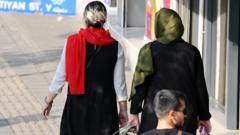Norway recently issued a significant apology to the Sami and other minority groups for over a century of cultural suppression and forced assimilation.
Norway Expresses Regret for Historic Abuse of Indigenous Cultures

Norway Expresses Regret for Historic Abuse of Indigenous Cultures
Norway’s Parliament: A New era of apology and resolutions for the Sami, Kven, and Forest Finn communities.
For over a hundred years, the Norwegian government enforced a ‘Norwegianization’ policy that oppressed the languages and cultures of Indigenous peoples and other minorities. This forced many children from their families and into boarding schools, leaving lasting scars that persist today. In a historic move, Norway’s Parliament has made a formal apology to the Sami, Kven, and Forest Finn peoples, pledging to address their ongoing discrimination through 17 resolutions. These measures aim to protect minority languages and promote education in those languages.
Silje Karine Muotka, a prominent Sami leader, shared her heartfelt response, calling it a “day with many emotions.” However, she stressed the need for genuine action moving forward. “We expect an active policy of reconciliation,” her statement read, noting the importance of ensuring long-term follow-up with both financial and legal ramifications. Despite these advancements, she acknowledged unresolved issues surrounding land and water rights that continue to inflict injustice.
The parliamentary apology and resolutions were inspired by a report from a Truth and Reconciliation Commission published last year, which outlines strategies for Norway to confront its oppressive legacy. Although King Harald V had previously expressed regrets to the Sami people, this recent apology marks the first time Kven and Forest Finn communities have received such official recognition of their suffering. With these developments, Norway seeks to navigate a new path towards healing and restitution for its Indigenous populations, although significant challenges remain on the horizon regarding land use and cultural preservation.





















